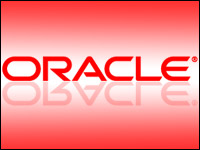
Last week Oracle bought the HR SaaS company Taleo for US$1.9 billion, which to me means it’s time to do you-know-what to the fire and call in the dogs. This hunt is officially over and out.
The hunt in question is for legitimacy and primacy of the SaaS and cloud computing model. Many people would argue that legitimacy happened when Salesforce had its first billion-dollar year — heck, its first $100 million would do just as well. But primacy has always been a wee bit dodgy.
There’s been a see-saw battle between the on-premise and cloud communities for many years, which culminated with all the major software companies finally adopting and promoting some version of their own cloud computing architecture in the last two years. Microsoft famously thinks the Web needs an operating system; Oracle announced its cloud, driven by its ultra-husky next-generation servers last fall at OpenWorld; and SAP has been trying its hand at multiple iterations of cloud computing.
More importantly, a raft of small entrepreneurial companies are offering hosting facilities much like when this business got started with ASPs, or application service providers. It’s tough to make a living selling commodity infrastructure, but the advances made by companies like Salesforce.com — such as the application in a browser rather than client-server — make selling infrastructure possible.
‘We’ve Seen This Before’
The Taleo announcement was so important that I had people emailing me to offer their thoughts. For instance, Tien Tzuo, one of the early employees at Salesforce and now the CEO of Zuora, a billing and payments solution provider for subscription businesses, had this to say:
“This is the tipping point for the cloud. RightNow [bought by Oracle], SuccessFactors [bought by SAP] and now Taleo. The big old-school enterprise players have just validated the cloud as the future and signaled the end of their reign.”
I agree, and it is reminiscent of Clay Christensen’s Innovator’s Dilemma, but Tzuo takes this theme even further.
“We’ve seen this before,” he says. “Siebel acquired Upshot trying to look more SaaS-like and apparently to box Salesforce.com into a corner. Instead it backfired. That one deal validated the SaaS model to CRM buyers. And almost overnight Salesforce went from up-and-comer to leader.”
Yup, I was there too. But I think what’s happening now is the incumbents are accelerating their efforts to catch up. With each vendor articulating a cloud strategy, we’re seeing mostly closed strategies, which means things might not change very much for their customers. Some vendors are trying to have it both ways, clouds plus customer lock-in.
Closed strategies limit choices and options, and at least in some situations we’ll continue to see higher than necessary costs for things like management and development or maintenance. What many of the clouds offer is a trimming of the cost of infrastructure, period. I think that’s what Marc Benioff means when he says, “Beware of the false cloud.”
Paradigm Shift
To put a final point on it, Tzuo says, “All these cloud acquisitions won’t help ERP one bit. Acquiring cloud companies doesn’t make you a cloud company. … It’s an attempt to distract customers and hope they will forget about the boat anchor they’re stuck with.”
Tzuo is not the only skeptic. Echoing Tzuo, Ted Elliott, CEO at Jobscience, an HR solutions company based on the Force.com platform (and so a Taleo competitor), said, “This really represents a capitulation by Oracle regarding the cloud. Unfortunately this would have been great in 2004, but in 2012 we are transforming towards social; a server company that builds databases is transaction-oriented and social is about relationships — people, not numbers”
Elliott’s got a point, and so does Tzuo, and perhaps the Taleo acquisition says a lot about a conventional software company trying to make the cloud conventional. But at this point the cloud is conventional, it’s just not conventional in that way. So a paradigm has been shifted.
“While Oracle and SAP are desperately trying to catch up to the cloud, the game has already changed to social,” said John Wookey, executive vice president of advanced applications at Salesforce.com. “We are focusing on moving the industry forward with the social enterprise applications and platform that companies are demanding.”
Perhaps most importantly, all this hoopla about clouds and rather conventional application areas means that many big vendors are not giving the attention they ought to be giving (in my opinion) to social media companies. They are proving to be a generation behind. Well beyond darlings like Facebook and Twitter, there are fascinating companies like Get Satisfaction, Studentforce and Crowd Factory — just to pick a few of names out of a hat — that are rocking their worlds and causing the next disruptions.
That’s where Salesforce has focused its energies. They still talk a lot about the cloud and its centrality, but they’re also onto a new vision — the social enterprise. The cloud is increasingly about plumbing; the social enterprise is about putting the plumbing to work.






















































